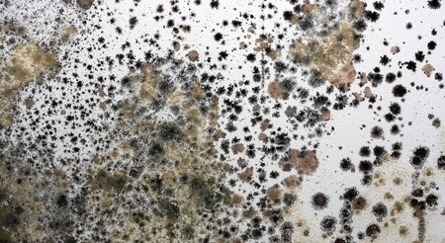At ServiceMaster Dynamic Cleaning, we deal with disasters every day. However, we know that the typical property owner will experience only a handful in their lifetime, so it's understandable that you may have questions. Mold is a common occurrence after a water loss when the water sits for a length of time. In fact, mold can begin to grow in as little as 24-48 hours.
The Q & A on Mold:
Q: What is Mold?
A: Mold is a microscopic fungus that is part of the natural environment and necessary for our ecosystem. While it is necessary in the outdoor world, too much mold inside a structure can be dangerous and unsanitary. Mold produces spores as part of its lifecycle, and the spores float through the air, both inside and out.
Q: Why is mold a problem?
A: Many people aren't aware that mold can cause serious structural damage to homes and businesses, which, if left undetected, can cause a property to lose value and/or require significant repairs. And if you ever suffered from allergies, exposure to molds can often cause nasal stuffiness, eye irritation, wheezing, skin irritation, or even more severe reactions.
Q: What does mold need in order to grow?
A: Mold needs a moist environment, temperatures above freezing, and a food source, which could be leaves, paper, dirt, wood, or other building materials. Mold is more likely to be found in damp, dusty spaces or areas with stagnant air.
Q: How can I tell if I have mold?
A: If you see mold growth or water stains, a mold test can help identify related microbial activity. You can also look for areas where water leakage has occurred, such as roofs, pipes, ceilings, or walls. Musty smells may also indicate the presence of mold.
Q: What can I do to prevent the growth of mold in my home?
A: The most effective means to keep the mold in check include keeping the humidity level of your home at 40-60 percent. Use an air conditioner and/or dehumidifier during the humid months and in damp spaces like basements. Always utilize exhaust fans in bathrooms and kitchens, along with dryer vents outside your home. Lastly, if there are leaks in your roof, walls or plumbing, it is important to repair them as soon as possible.
Q: When does mold need to be handled by a professional remediation company?
A: Most experts recommend a professional remediation company when elevated mold levels are detected. Remediation professionals are specially trained to isolate and treat mold-affected areas to avoid contaminating adjacent spaces.
Q: How is a traditional mold test conducted?
A: Mold testing is done as a comparison between mold levels outside the structure and inside the structure. Remediation professionals are specially trained to isolate and treat mold-affected areas to avoid contaminating adjacent spaces.
Q: Some molds have the reputation of being more dangerous than others. Is identifying the mold important?
A: Sometimes you will hear terms like "toxic mold" and "black mold" used to refer to molds. While identifying the type of fungus or mold may be interesting, it doesn't affect the course of action. If mold is present, the CDC has strongly recommended that it be removed, no matter the type.
Q: Does homeowners insurance cover mold?
A: In general, homeowners insurance will pay for mold damage that is a direct result of sudden and accidental water issues. For example, if a pipe bursts in your basement and mold growth results, the damage should be covered because the source of the water is covered by the policy. Mold resulting from humidity or slow leaks that could have been prevented by routine home maintenance is typically not covered by home insurance. Related: Does Homeowners Insurance Cover Mold?
If you have mold, we can help. ServiceMaster Dynamic Cleaning mold remediation technicians are trained to assess the problem and determine a solution that works for you. Learn more about our mold remediation services and contact us now for an estimate.


